In this episode, Peter sits down with his daughter to answer questions from her and other kids about COVID-19.
Subscribe on: APPLE PODCASTS | RSS | GOOGLE | OVERCAST | STITCHER
We discuss:
- What is a virus? [1:45];
- How did this version of coronavirus (SARS-CoV-2) start? [4:30];
- How does COVID-19 compare to SARS and MERS (previous coronaviruses)? [6:00];
- Will COVID-19 come back again after we resolve the current issue? [7:15];
- When will kids go back to school? [7:45];
- How has the US surpassed China in total cases, and how could we have been better prepared for this? [8:30];
- Should have we started to quarantine sooner than we actually did? [11:45];
- What about herd immunity? Would it be easier if we all just got the virus so we could be immune? [13:45];
- Which age groups are the least and most at risk for getting a deadly version of the virus? [15:00];
- Why do we have to wipe down packages that are delivered to our homes? [16:30];
- How a lack of preparation and discipline led to this troubling situation [18:45];
- Is China to blame for all of this? [24:15];
- What did Olivia think when her parents pulled her out of school before it was mandated? [26:30];
- What’s been the hardest part of this for Olivia? [27:50];
- What does Olivia appreciate now that she probably didn’t appreciate in the past? [28:50];
- How are Olivia’s zone 2 workouts going? [30:00]; and
- More.
Show Notes
What is a virus? [1:45]
- A virus has genetic material so it’s sort of “alive”
- However, it can’t survive (and replicate) on its own… so it needs a “host”
- It’s very tiny ⇒ invisible without a microscope
- When it infects a host, many times the host is unharmed
- But other times it causes bad colds, or a nasty stomach bug or other types of pain and suffering to the host as part of its replicating process
How did this version of coronavirus (SARS-CoV-2) start? [4:30]
- This version of coronavirus is called SARS-CoV-2
- When SARS-CoV-2 infects a person, they develop the disease called COVID-19
- The virus originated in bats
- The best evidence suggests that the virus went from a bat to a pangolin to a human
- It’s thought that a person probably illegally poached the pangolin and used it’s scales for medicinal purposes and that is how the first person got infected
- That first person lived in Wuhan, China and got this virus in November 2019
- That person then spread it to the people around him and then the virus continued to spread all around the world
How does COVID-19 compare to SARS and MERS (previous coronaviruses)? [6:00]
- Previous versions of the coronavirus, like SARS and MERS, were more lethal ⇒ meaning they killed a higher percentage of the people that they infect
- SARS killed about 10%
- MERS killed about 30%
- The good news is that those viruses didn’t spread very far so very few people got them
In the case of COVID-19…
- it spreads VERY easily and so it can kill more people in total even if only a small percentage of people who get it will die from it
- Currently over 1 million confirmed cases, but probably tens of millions of unconfirmed cases
Will COVID-19 come back again after we resolve the current issue? [7:15]
- It’s too early to say, but “probably” says Peter
- Could another one show up?
-
- Yeah.
When will kids go back to school? [7:45]
Will kids go back to school this year?
- “I don’t really know, but if I really had to guess. I don’t think you’re going back to school this year.”
Some people say that not even until maybe next year…Is that true?
- We just don’t know yet
There is a lot we don’t know right now…
- We don’t actually know how many people have this infection
- It could be that a lot of people already have the infection and they’re doing really well and it’s not causing that much harm.
- And in that case, people who aren’t at very high risk for getting very sick could go back to school
- But it’s also possible that we have to be much more careful and much more concerned
- And if that’s the case, this quarantine might be something that lasts a little bit longer.
How has the US surpassed China in total cases, and how could we have been better prepared for this? [8:30]
- Basically we didn’t do a good job of preparing for it
- We also deep heed the warnings
- We had lots of evidence that it could easily spread outside of China
- but we didn’t take a bunch of steps we should have taken
This is a much bigger problem that goes back a number of years…
- We don’t really have the infrastructure in place to prepare for something like this
- For example, we don’t have a national stockpile of the type of equipment that doctors and nurses would need to be protected from this if they’re taking care of a bunch of people that got sick
Lack of testing:
- We didn’t take advantage of the work that the Chinese people already did for testing
- In January, Chinese scientists had already DNA sequenced the virus
- That would have been a great time to have doubled down on developing tests in the United States or taking tests that others had developed and making sure we had enough of them
- South Korea did this, for example, and they’ve had way less deaths per million people than the US even though this started around the same time in both countries
How could we have been better prepared for this?
- It’s having the infrastructure in place to deal with pandemics
- It’s also having a pandemic preparedness program that is well funded
- “I just don’t think our leaders we’re doing a great job.”
Should have we started to quarantine sooner than we actually did? [11:45]
- Yes, especially in places like NYC which has…
- A high density of people
- And a lot of public transit being used
What about herd immunity? Would it be easier if we all just got the virus so we could be immune? [13:45]
Some people are saying they just want to get the virus and be over it, meaning they won’t have to quarantine anymore since they’ve already been exposed to the virus. Does Peter think that’s a good idea?
- That’s a really good question, says Peter
- The technical term for that idea is called herd immunity
- This is basically saying that once you get it, you probably can’t get it again, so we might as well get it “over with” and then be immune
- Just like chicken pox
However… there’s a couple reasons why this might not be the best idea
- We actually don’t know yet if that is completely the case
- While the majority of people recover from the virus…
- We don’t know if that immunity is going to last them for another six months, another year, another five years for the rest of their lives
- There are certain people who are at high enough risk to get sick from the virus that you might not want to take the chance of letting them just get infected
- Kids are not at risk
- No kids Olivia’s age have died from COVID-19 in the US (as of 4/5/20)
- But, kids can transmit it to more at risk people who could die from it
Which age groups are the least and most at risk for getting a deadly version of the virus? [15:00]
Kids are very low risk
- No kids Olivia’s age have died from COVID-19 in the US (as of 4/5/20)
- But, kids can still transmit it to more at risk people who could die from it
Age risk
- Your age doesn’t change you chance of getting the virus
- But it changes your risk of needing hospitalization and death from it
- The younger you are the less at risk you are
Underlying conditions
- Underlying conditions also affect risk
- So if you have high blood pressure, diabetes, heart disease, etc. you are more at risk
Why do we have to wipe down packages that are delivered to our homes? [16:30]
There was a study that was published about three weeks ago that actually looked at putting the virus on different surfaces like cardboard, plastic, steel, copper, etc.
- Turns out that this virus can live for a day or two on cardboard
- It’s unclear if there is enough of the virus left on the package to actually infect you… but it’s better to just be extra cautious
- What we’re doing is we’re opening Amazon packages outside, we’re cleaning off the contents of them, and then just washing our hands really thoroughly.
- Wash hands for 20 seconds!
How a lack of preparation and discipline led to this troubling situation [18:45]
Peter is very upset with how unprepared we were for this pandemic
- He says that we had plenty of evidence to know this was going to happen eventually
- But our leaders failed to take the preemptive actions to be prepared
- And this goes back many many years, not just recent evidence
“The underlying theme to how we got here is we didn’t really do the things we needed to do before it was too late. . .it’s sometimes really hard to do things for which the payoff is far in the future.” -Peter Attia
Analogy:
- What if Olivia’s parents never forced her to clean her room, eat well, study, play sports, and instead let her watch TV all day?
- It might be fun for a little while but eventually it would become a disastrous situation
- So how do you make that trade off?
- You have to have discipline now so that it can benefit you later.
- Just like Jocko Willink says, “Discipline equals freedom.”
⇒ This unpreparedness for this virus pandemic is a perfect example of “adults not doing their homework, not saving their allowance, not eating their vegetables, not exercising, not doing their homework, just completely dropping the ball and now we’re paying the Fiddler.”
Is China to blame for all of this? [24:15]
- It’s become convenient for people to put the blame of this mess all on China, says Peter
- Peter uses the following analogy to explain it
- China is like someone who cut you off on the freeway
- If you were being vigilant and paying attention, you would have been able to avoid a disaster
- However, if you were speeding, texting, not wearing a seat belt, etc. and then you get cut off and you end up in a huge crash and disaster…
- The point is: China didn’t do everything right, but we need to take responsibility for the fact that we were not paying attention
What did Olivia think when her parents pulled her out of school before it was mandated? [26:30]
- Peter and his wife pulled their kids out of school before it was officially mandated for schools to be closed
- Olivia said she thought they were crazy at first and a weird thing to do since none of her friends were pulled out
- And she was a little mad at them, she didn’t want to fall behind on schoolwork or miss her friends
- But soon after this happened, schools were officially closed
What’s been the hardest part of this for Olivia? [27:50]
- No friends
- “I’m a really social person.”
- She also misses not playing sports (her basketball season just started)
- School is also more challenging because she cannot really ask questions when a teacher is going through a lesson so it’s easier to get lost
“I have a headache after each class and yeah I do not like online school. I wish we could have school back.” -Olivia Attia
What does Olivia appreciate now that she probably didn’t appreciate in the past? [28:50]
“Just school in general. Like me and my friends are saying how we took school for granted and we didn’t realize how amazing it was to have school.”
How are Olivia’s zone 2 workouts going? [30:00]
How many Watts are you up to?
- I’m at 65 to 70
- She thinks she can go higher now
- She’s been increasing the duration of her workouts no problem
What was Olivia’s last lactate level at 70 watts?
- 2.1-2.3
Selected Links / Related Material
Study that looked at putting the virus on different surfaces (such as cardboard) to see how long it would live: New coronavirus stable for hours on surfaces | (nih.gov)

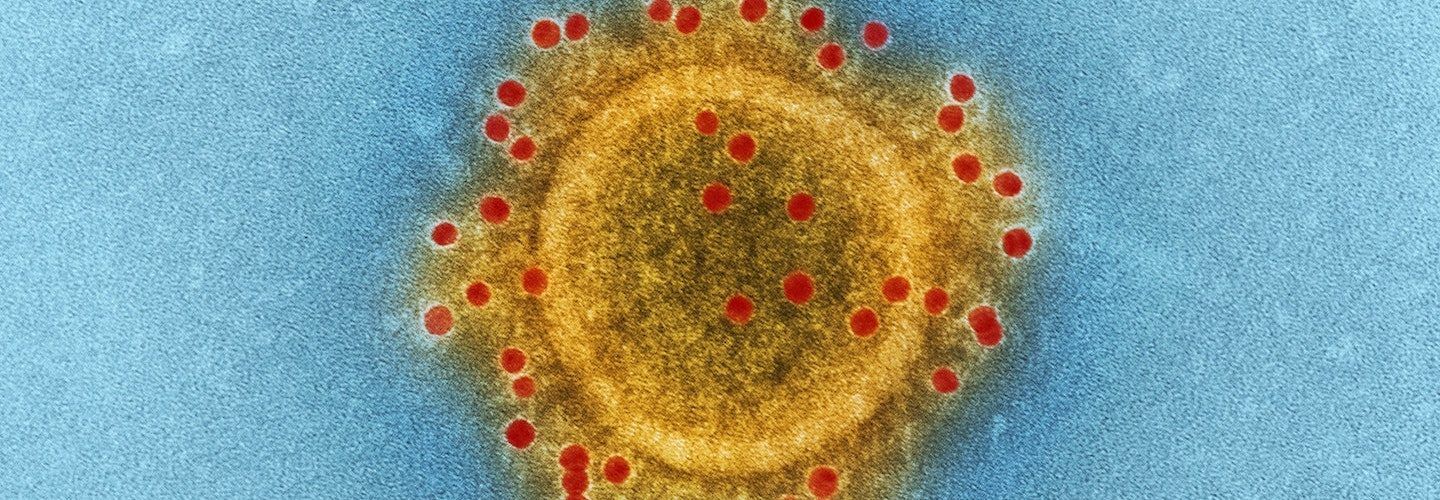
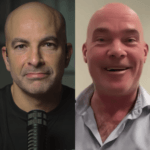
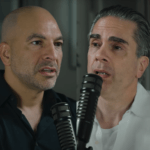
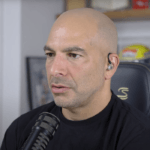
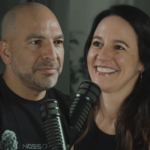
How old is Olivia? Smart cookie…
Peter,
You have an amazing daughter. Great conversation! I certainly agree with you concerning the lack of preparation for a pandemic. I was quite shocked when all the CDC had to offer was, wash your hands, social distance and hope for a vaccine.
I have some questions concerning the innate immune system. My understanding at the moment is that we have in our DNA what is commonly labeled, the MBL2 gene, that codes for the Mannose Binding Lectin(MBL) protein. These MBLs bind to the glycoproteins on the surface of viruses, bacteria and fungus. In the case of the corona virus, the binding prevents the virus from entering the cell via the ACE2 receptor. It is well established in the literature that within a population, there are a significant set of people that have deficiencies in their MBL2 gene. This leads to susceptibility to infectious diseases. Are we to some degree, literally sorting out individuals with genetic deficiencies(weak innate immune system capability) together with weak adaptive immune systems via a pandemic? Genetic testing or a lab test for MBL levels in combination with standard white cell differentials would be an additional way to prepare for a pandemic by adding to the class of people with extremely weakened immune systems. Plants use MBLs to protect themselves from viruses. It would be interesting to compare the genetic code for Human MBL2 with the genetic code for plant MBL2. For low MBL producers, supplementation should be of benefit.
I use an ozone generator to sanitize incoming packages and food and use food grade hydrogen peroxide to sanitize fruits and vegetables.
Why wasn’t antibody therapy started for health care workers as soon as the first patients with antibodies recovered? It is a very old technology. 1918 or so.
It seemed like the rest of the planet was wearing masks, our CDC had to wait for a study to prove that transmission occurs before symptoms. Is this the first virus where that is the case?
Why are they not prescribing zinc along with hydroxychloroquine, since zinc is the mechanism used to kill the virus inside the cell. Elderly people may be more likely to be zinc deficient.
I enjoy your content and have been Keto since 2012.
Thanks,
Bill
That was brilliant and extremely helpful. Thank you both so much.
It baffles me why so very few are talking about Vitamin D in this pandemic. I suspect it wopuld be very interesting and useful to track Vit D levels and response to the virus, i.e. from asymptomatic to the pother end of the spectrum, death.
I don’t know whether it’s just me or if everybody else experiencing problems with your
blog. It looks like some of the written text within your posts
are running off the screen. Can someone else please comment and let me know if this is happening to them as well?
This might be a problem with my browser because I’ve had this happen before.
Appreciate it
Thanks for this! It spawned a great conversation with the kids, who are working on their Public Health merit badge for Boy Scouts. I enjoyed the plug for less screen time and ice cream (a constant battle for parents circa 2020). My kids, not so much, but it planted the seed.
I hope “for kids” episodes will pop up from time to time. I always feel so dumb listening to regular ones (but still like the podcast a lot).
It most certainly is China’s fault! This is not the first time that a deadly virus has emanated from China! You have heard of Wet Markets, correct? They are the epicenter of this, and many more outbreaks, and if these morons would cease their lust form consuming exotic animals, this would quell the viruses that threaten the globe.
But Bird flu and Swine flu epidemics did not start in China. Neither did Ebola. There is some evidence that industrial scale agriculture and humans encroaching on the wild life habitats is one of the serious issues behind these epidemics.
Great episode! The tone of the conversation simply made me smile with my entire face.
Hey Peter. Great idea on multiple fronts to include a podcast for kids with Olivia, and I think that continuing to include an emerging adults perspective is so helpful (many of your readers have kids, and it was a great gentle reminder that discipline equals freedom). I do want to point out that four children have died with the multi systemic inflammatory syndrome associated with COVID, 3 in New York, one in Louisiana. Not sure of their ages.
On the topic of masks, what’s the best way to deal with mask deniers and is there a list of studies to point them to about the efficacy of wearing a mask to reduce transmission?